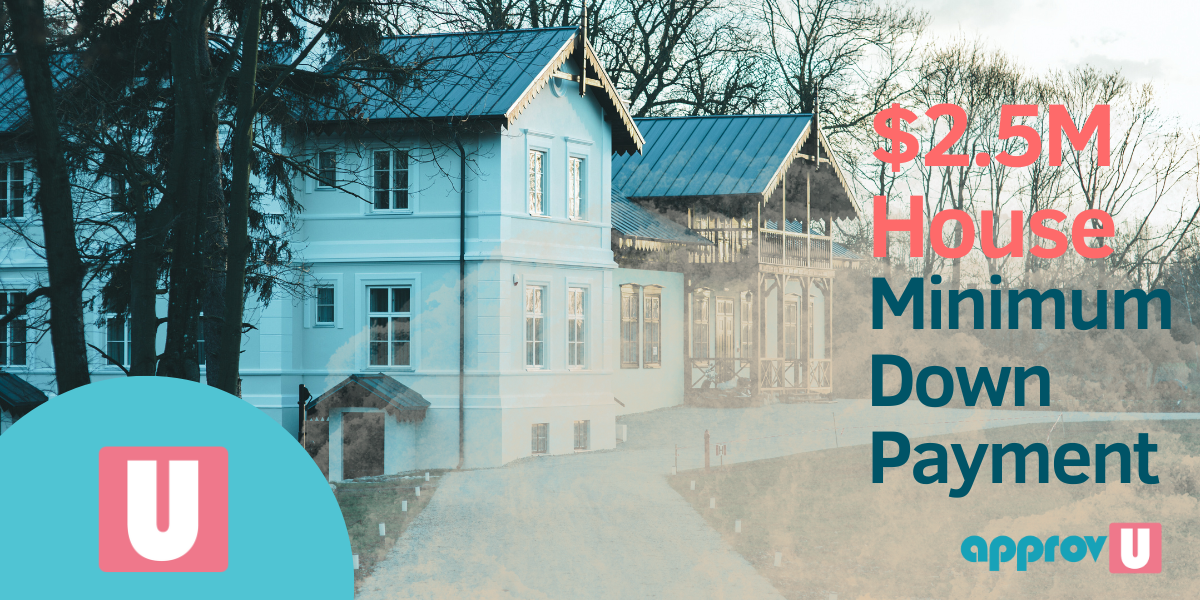Are you a foreign investor eyeing the robust and diverse Canadian real estate market?
You’re not alone.
Canada’s market has seen consistent growth over the years, and foreign investors, like yourself are taking notice.
As an international investor, Canada offers a range of opportunities, from the bustling urban landscapes of Toronto and Vancouver to the serene vistas of the Atlantic provinces.
Whether you’re interested in residential or commercial properties, this vast country offers various viable real estate options.
However, investing in a foreign land comes with its own set of challenges, not least of which includes understanding local laws, identifying the right properties, securing financing, and managing the property.
But don’t let these potential hurdles discourage you. Buying an investment property in Canada can be fruitful with proper guidance and a strategic approach.
This blog post aims to provide you with five essential tips to guide you through the process.
By the end of this piece, you should feel more equipped to begin or continue your investment journey in the Canadian real estate market.
So, let’s dive in and explore the promising world of Canadian real estate investing!
Understanding the Canadian Real Estate Market
Canada’s real estate market is as diverse as its landscape.
Each region has unique opportunities and challenges, from the cosmopolitan cities of Toronto and Vancouver to the rapidly growing tech hub of Waterloo.
Understanding these regional differences is the first step toward making a wise investment decision.
You might be drawn to the bustling cityscape of Vancouver, known for its high-rise condominiums and stunning views of the Pacific.
Or perhaps you’re considering the dynamic city of Toronto, a melting pot of cultures with a booming real estate market.
Maybe the burgeoning tech sector in Waterloo, Ontario, catches your interest, offering a thriving rental market due to its young, professional population.
But the Canadian real estate market isn’t limited to these well-known cities.
Other regions like Quebec, Alberta, and the Atlantic provinces, with their distinct cultural heritage and picturesque landscapes, also have much to offer.
What’s important is to research the market trends, population growth, and economic indicators in the regions you’re interested in.
Understanding these factors will help you predict potential growth and the viability of your investment over the long term.
Moreover, it’s crucial to keep up with the market forecasts.
Though Canada has seen a steady appreciation in property values over the years, trends can vary across regions and property types.
Keep yourself informed about the market’s health, governmental policy changes affecting real estate, interest rate fluctuations, and general economic trends.
Tip #1: Research and Understand Local Laws and Regulations
As a foreign investor, it’s vital to acquaint yourself with the laws and regulations governing the Canadian real estate market.
Ignorance of these rules could lead to unexpected obstacles and costs, hampering your investment strategy.
One of the first things you’ll want to understand is the Foreign Buyer’s Tax. Some provinces in Canada, like British Columbia and Ontario, have implemented this tax to moderate the real estate market.
The tax typically applies to foreign nationals buying property in specific regions and can significantly increase your purchase price.
Next, familiarize yourself with the Non-Resident Tax rules.
If you’re a non-resident selling a Canadian property, you may be required to pay a portion of the property’s selling price as tax to the Canada Revenue Agency.
Understanding these regulations beforehand can save you from unpleasant surprises later on.
But it’s not just about taxes. As a potential landlord, you must know local laws regarding tenant rights, rental increases, eviction rules, etc.
These rules vary from province to province, and understanding them is key to maintaining a good relationship with your tenants and avoiding legal complications.
Tip #2: Identify the Right Kind of Property
Identifying the right kind of property is one of the most critical aspects of investing in Canadian real estate.
The type of property you choose can significantly affect your investment’s potential returns, maintenance costs, and overall success.
Firstly, consider the various types of properties available to you.
Are you interested in residential real estate like single-family homes, duplexes, or apartments?
Perhaps you’re looking at commercial properties like office buildings, retail spaces, or warehouses.
Or maybe you’re attracted to the idea of investing in vacation properties, particularly in popular tourist areas.
Each property type comes with its own set of considerations.
For example, residential properties can provide a steady income stream through rentals but may require regular maintenance and management.
Commercial properties might offer higher returns but could be more susceptible to economic downturns.
Vacation properties can generate significant income during peak seasons but could remain vacant during off-peak times.
Understanding the market demand is crucial in making your decision.
Research rental or sales trends in the area you’re interested in.
A high-demand property type can command higher rents and resale values, leading to better returns on your investment.
Consider your own capacity and comfort level as well.
Do you have the time and resources to manage a multi-unit residential property? Are you comfortable with the volatility that can come with commercial real estate?
Finally, think about your long-term goals.
Are you looking for a regular income stream, or is your primary objective capital appreciation?
Your investment goals will play a vital role in determining the most suitable property type for you.
Tip #3: Secure Financing
Once you clearly understand the local laws and regulations and have identified the right kind of property, it’s time to consider your financing options.
While having the capital to buy a property outright is ideal, most foreign investors will need some sort of financing to acquire Canadian real estate.
Canadian banks and other lending institutions offer a variety of financing options for real estate investment.
However, lending policies can be stricter for foreign investors, with higher down payment requirements and more rigorous credit checks.
You should expect to provide proof of income and assets, along with a good credit history, to secure a mortgage loan in Canada.
When considering your financing options, think about the exchange rate as well.
The value of the Canadian dollar against your home currency can significantly affect your investment’s cost and potential returns.
It may be beneficial to consult with a financial advisor to understand the implications of exchange rate fluctuations.
You may also explore other financing options, such as partnering with a Canadian investor or using home equity from properties in your home country.
Each option has its own pros and cons, and understanding these can help you make a better decision.
Tip #4: Work With Experienced Real Estate Professionals
The real estate market is a complex arena, and as a foreign investor, having a team of local professionals on your side can be immensely beneficial.
These experienced individuals can provide you with valuable insights, offer expert advice, and guide you through the intricacies of buying an investment property in Canada.
Starting with a real estate agent, finding someone well-versed in the local market, understands your needs, and can guide you through the buying process is crucial.
An agent with experience working with foreign investors will be aware of the unique challenges you may face and can address them effectively.
Next, consider hiring a local real estate attorney.
They can help you understand the local laws and regulations, guide you through the legal aspects of the purchase, and ensure that your investment is legally secure.
Don’t forget about accounting.
A knowledgeable accountant can assist you with the financial aspects of your investment, including taxes, expenses, and potential profits.
They can help you understand how your investment will impact your financial situation and help you plan accordingly.
When selecting your team of professionals, do your research. Look for individuals with solid credentials, positive reviews, and a proven track record. And
be afraid to ask questions. The more informed you are, the better you’ll be able to make the right decisions.
To get the right mortgage to buy an investment property in Canada, you can use approvU Mortgage, an online mortgage marketplace.
approvU offers easy access to lenders, personalized mortgage solutions, expert guidance, and assistance from mortgage professionals, enabling them to secure financing efficiently and confidently invest in Canadian properties
Tip #5: Proper Management and Maintenance of the Property
Once you’ve acquired your property, proper management and maintenance become paramount to ensure its profitability and longevity.
This includes everything from routine maintenance to managing relationships with tenants.
Hiring a professional property manager may be a smart move for some investors.
They can handle all aspects of the property, including tenant screening, rent collection, routine maintenance, and emergency repairs.
This is especially beneficial if you live outside Canada, as the property manager will be able to respond to any issues that arise promptly.
On the other hand, if you decide to manage the property yourself, be prepared for the work that comes with it.
This includes staying up-to-date with local laws, ensuring rent is collected on time, addressing tenant concerns, and keeping the property in good shape.
Maintenance of your investment property is crucial. Regular upkeep keeps the property habitable and safe for tenants and helps preserve the property’s value over time.
Budgeting for routine maintenance tasks like landscaping, cleaning, minor repairs, and major expenses like roof replacements or structural repairs is essential.
Be sure to familiarize yourself with the rights and responsibilities of landlords in the province where your property is located.
This can help you avoid legal disputes and maintain a good relationship with your tenants.
Conclusion
You’ve now been equipped with five essential tips to guide you as you venture into the Canadian real estate market as a foreign investor.
You’ve learned about the importance of understanding the local market, the various laws and regulations, and the types of properties you can invest in.
Additionally, you’ve discovered how to secure financing, the benefit of working with experienced professionals, and the critical role of property management and maintenance.
Remember, the path to successful real estate investment is paved with informed decisions and careful planning.
It might seem daunting at first, especially when investing in a foreign market, but armed with the right knowledge, you can confidently navigate this journey.
















